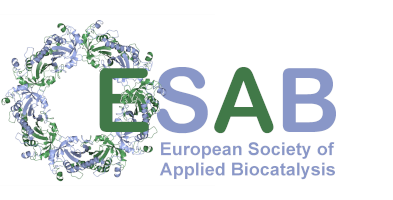Design of heterogeneous catalysts for intensification of oxidative reactions in biorefineries processes
Abstract
Oxidative biotransformations find a prominent role in the fine chemical industry and the valorization of renewable feedstocks. Implementation of oxygen-dependent reactions faces some challenges across scales and at different levels of development. First, the fruitful development of enzyme candidates and identification of reaction possibilities is not in consonance with the implementation in process engineering. Second, reaction engineering faces a complex interplay of reaction kinetic, oxygen transfer and process stability. Third, given the advances in synergic fields such as molecular biology, chemistry, material sciences and (micro)process engineering, an interdisciplinary assembly from a consistent discipline around heterogeneous biocatalyst engineeringwould be of strategic value. In this presentation, we show a roadmap for the study and development of biocatalytic processes taking relevant cases of valorization of sugars and phenolics by biooxidation routes. Galactose oxidase and laccases and will be shown as case studies. Relevant aspects of raw material pretreatment, heterogeneous biocatalyst design, and reaction engineering are discussed and schematized in a framework for the design and optimization of biotransformations.
About the Speaker(s)
 Juan Manuel Bolivarisan associate professor at the Department of Chemical Engineering from the Complutense University of Madrid. Juan Manuel isa Chemical Engineer from the University of Granada (2004) andgot his PhD from the Complutense University (2009). His doctoral thesis research work wasdeveloped at the Institute of Catalysis (Madrid) under the supervision of CSIC professors Jose M. Guisán and Roberto Fernández-Lafuente. The work dealt with the design of strategies for immobilization and stabilization of enzymes. In 2010 he obtained the postdoctoral researchgrantfrom the Government of Spain to carry out his research stay at the Technical University of Graz, working on the immobilization of enzymes in microreactors in the group of Professor Bernd Nidetzky. From 2012 to 2019 he was an assistant professor at the Institute of Biotechnology and Biochemical Engineering of the same University working on the development of heterogeneous enzymatic catalysts and reaction engineering tools for biocatalyst implementation. In 2029 He joined the Complutense University of Madrid Current and future activities lie in heterogeneous biocatalysis, continuous flow reactors and bioprocess intensification in the context of integrated biorefineries.
Juan Manuel Bolivarisan associate professor at the Department of Chemical Engineering from the Complutense University of Madrid. Juan Manuel isa Chemical Engineer from the University of Granada (2004) andgot his PhD from the Complutense University (2009). His doctoral thesis research work wasdeveloped at the Institute of Catalysis (Madrid) under the supervision of CSIC professors Jose M. Guisán and Roberto Fernández-Lafuente. The work dealt with the design of strategies for immobilization and stabilization of enzymes. In 2010 he obtained the postdoctoral researchgrantfrom the Government of Spain to carry out his research stay at the Technical University of Graz, working on the immobilization of enzymes in microreactors in the group of Professor Bernd Nidetzky. From 2012 to 2019 he was an assistant professor at the Institute of Biotechnology and Biochemical Engineering of the same University working on the development of heterogeneous enzymatic catalysts and reaction engineering tools for biocatalyst implementation. In 2029 He joined the Complutense University of Madrid Current and future activities lie in heterogeneous biocatalysis, continuous flow reactors and bioprocess intensification in the context of integrated biorefineries.
